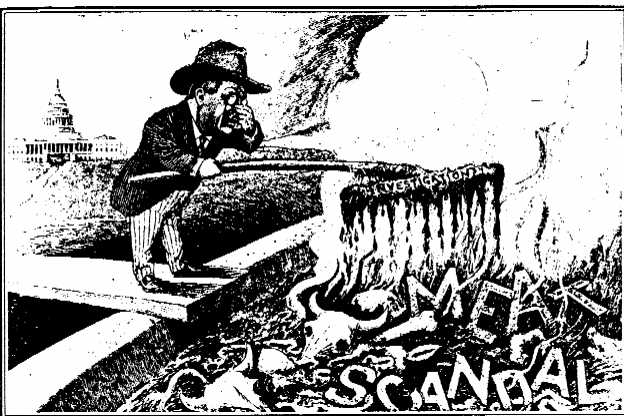Theodore Roosevelt, “The Man with the Muck-rake”
April 14, 1906; Washington, D.C.
Theodore Roosevelt was president during the Progressive Era, a time of great enthusiasm for reform in government, the economy, and society. TR himself held many progressive ideals, but he also called for moderation, not extremism. The “Man with a Muck-rake” in Pilgrim’s Progress never looked heavenward but instead constantly raked the filth at his feet. TR thus dubbed the journalists and activists of the day who were intent on exposing the corruption in society as “muckrakers.” He felt that they did a tremendous amount of good, but needed to mitigate their constant pessimism and alarmist tone. He worried that the sensationalism with which these exposes were often presented would make citizens overly cynical and too prone to throw out the baby with the bathwater.
Worthy Excerpt:
To assail the great and admitted evils of our political and industrial life with such crude and sweeping generalizations as to include decent men in the general condemnation means the searing of the public conscience. There results a general attitude either of cynical belief in and indifference to public corruption or else of a distrustful inability to discriminate between the good and the bad. Either attitude is fraught with untold damage to the country as a whole. The fool who has not sense to discriminate between what is good and what is bad is well-nigh as dangerous as the man who does discriminate and yet chooses the bad. There is nothing more distressing to every good patriot, to every good American, than the hard, scoffing spirit which treats the allegation of dishonesty in a public man as a cause for laughter.
Such laughter is worse than the crackling of thorns under a pot, for it denotes not merely the vacant mind, but the heart in which high emotions have been choked before they could grow to fruition.
No comments:
Post a Comment